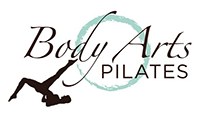Why PILATES?
“Why Pilates?” The simplest answer for this is, because we are right handed, left handed or ambidextrous. We have predominant movement patterns that make us unbalanced, and in Pilates, we work evenly. From the moment you step into a Pilates Studio you are visually immersed in Joe Pilates’ creations –
his patented Gratz equipment. And on a subconscious level you start thinking about rectangles and how your body relates to rectangles and how your body is a rectangle. Pilates is about learning how to work in your box and most of us are trying to work outside the box. It is a conscientious study of moving from the inside out. But beyond the rectangles, Pilates’ genius comes from his using springs to not only strengthen muscles but teach muscles how to engage. The first piece of equipment that Joe Pilates created was the Cadillac.
He was interned in The Isle of Man during WWI:
In the fall of 1916, a Prisoner of war Employment Committee was formed, which lifted [these] restrictions and allowed internees to work in the camps. It was most likely during this time that Joe began working in one of the hospitals as a nurse/ physical therapist.
Having been a sick, frail child, he was determined to find a way to help people confined to a bed from illness or injury. Joe experimented by taking bedsprings and rigging them up to the hospital bed headboards and footboards. He also hooked springs to wheelchairs. These springs provided a form of resistance to those confined. He also devised a variety of handholds above the beds, for patients and nurses to hold to facilitate changing patient positions. These small apparatus drew great attention from doctors as they witnessed tremendous improvement in their patients’ strength and health. These first bedsprings led to Joe’s first official piece of apparatus, which later became known as the “Trap Table” or “Cadillac.”
All Pilates’ equipment has springs, but the way he taught us to use the equipment and the way he designed his equipment causes us to use and understand how to use our muscles differently. He makes us become the apparatus – the springs (legs) and the bed (torso) of the Reformer, the Cadillac and the Chair. If one was to have a Gratz reformer, and conscientiously practice Pilates, they would discover how to use their body. He lives on through his apparatus. His words and his exercises live on through his students. Today there are few schools worldwide that teach the true Pilates practice. It is no small amount of learning and quite costly but it is one of the most worthwhile pursuits. It is a calling. Pilates wrote, “Since we are living in this modern age we must out of necessity devote more time and thought to the important matter of acquiring physical fitness.” His method inspires this. And the result: A strong, stretched, balanced body and mind and life that feels wonderful.
